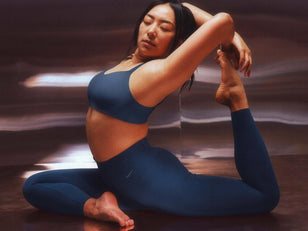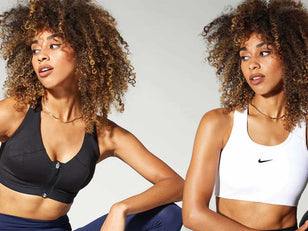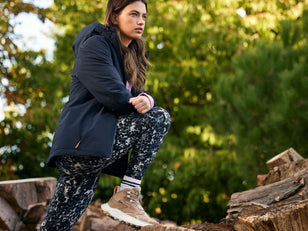
Anxiety is one of the most common mental issues facing Brits today. Statistics from the Mental Health Foundation reveal there were 8.2 million cases of anxiety in the UK in 2013. Those suffering from the problem may worry, feel on edge, find it hard to concentrate and even experience physical side effects, such as headaches and stomach problems.
If all of the above sound familiar, it’s time to take action. While there’s no ‘magic cure’ for anxiety, there are some lifestyle changes you can make to help manage it. For instance, you can seek help from your GP, speak to close friends for support and try cognitive behavioural therapy techniques. However, there’s one approach you shouldn’t overlook.
Regular exercise can reduce anxiety symptoms by as much as 20%, according to research from the University of Georgia. Including some form of physical activity in your daily routine may have a serious impact on how you feel. Here’s what you need to know.
5 TYPES OF FITNESS THAT COULD RELIEVE ANXIETY
While any exercise is likely to lower feelings of anxiety, researchers have highlighted some specific types that are effective. If you’re not sure which activity suits you, why not take a peek at the following five research-backed options? Including them in your day-to-day schedule could help you unwind and alleviate worry while boosting your well-being.

1. Yoga
Taking a moment out of your busy schedule to do yoga may lower your anxiety. Back in 2016, research from Georgia State University suggested that yoga could be an alternative or additional treatment for people with generalised anxiety disorder. The experts found that the practice tended to reduce people’s worry, one of the main symptoms of the disorder.
What’s more, 2020 research from the NYU School of Medicine suggests that yoga improves generalised anxiety symptoms in some people. The study found that the activity was more beneficial than stress management techniques when it comes to keeping anxiety in check. However, the interesting research also found yoga sessions were less effective than engaging in cognitive behavioural therapy (CBT) practices.
Check out our Instagram for a variety of yoga classes to try.
2. Group Exercise
Do you hit the gym alone or prefer to work out with friends? Believe it or not, the latter may help to improve your mental well-being and even lower anxiety symptoms. Research from the American Osteopathic Association suggests that group exercise can lower your stress levels, improve your quality of life and boost your emotional wellness to boot.
If you usually tend to exercise alone, why not consider teaming up with a friend to get active. There are plenty of ways to engage in group activity. The most obvious is to join a sports team. However, that’s not for everyone. You may also want to get a running partner, start cycling with people you know, take a fitness class or find a gym buddy.
3. Mindful Movement
Have you tried mindful movement? This activity is all about being present in the moment as you engage in exercise. For instance, when you take a walk in the great outdoors, rather than thinking about all the things you have to do when you get home, take a moment to notice your breathing and surroundings. It might sound like a simple tip, and yet few of us practice mindfulness when we are doing something active.
Practicing mindful movement may help to lower your stress levels, according to the latest research from Penn State. The study found that being mindful while you move could have a momentary effect on your mood and psychological well-being. The next time you decide to head out for some light activity, keep this trick in mind and give it a go.
4. Tai Chi
Tai Chi is a low-impact martial art which combines defense training and meditation practices. While you may never have considered giving this activity a whirl, research suggests that it could be a simple way to lower feelings of anxiety. In fact, a study published in BioMed Central suggests that this practice can relieve feelings of stress and anxiety while even lowering depression symptoms. Why not try it for yourself?

5. Meditation
When was the last time you took a moment to simply be still? If you’ve got a hectic schedule, chances are that it’s been a while since you took a break. That’s where mindfulness meditation comes into play. The practice allows you to slow down and take stock of your body, the environment around you and how you feel.
Practicing mindfulness meditation could have a positive psychological impact on people with mild to moderate anxiety, according to research from Michigan Technological University. Aside from the mental benefits of the activity, the study also found that it could lead to better cardiovascular health in the long run. Find a class near you and get started.
THE TAKEAWAY!
Ready to get moving? Now that you’ve got the inside scoop on how fitness can relieve anxiety, what are you waiting for? It’s worth trying out a few different types of activity and seeing what sticks. You could sign up for some taster classes at your local gym or use apps to get started. Take the time to find out what works for you and your schedule.






























































